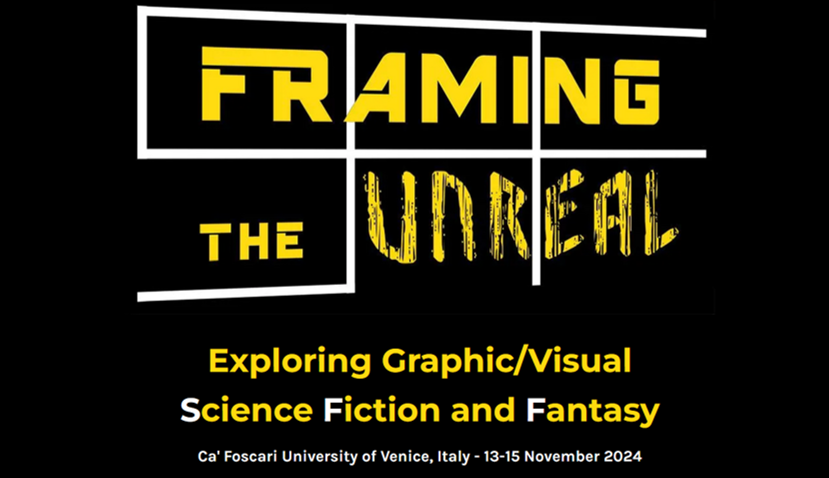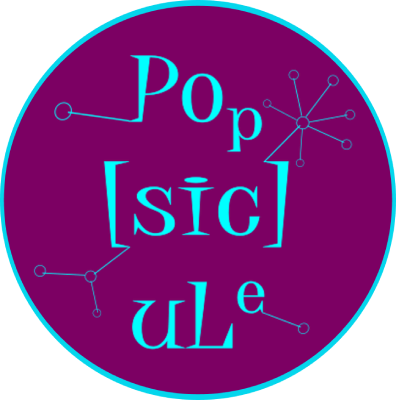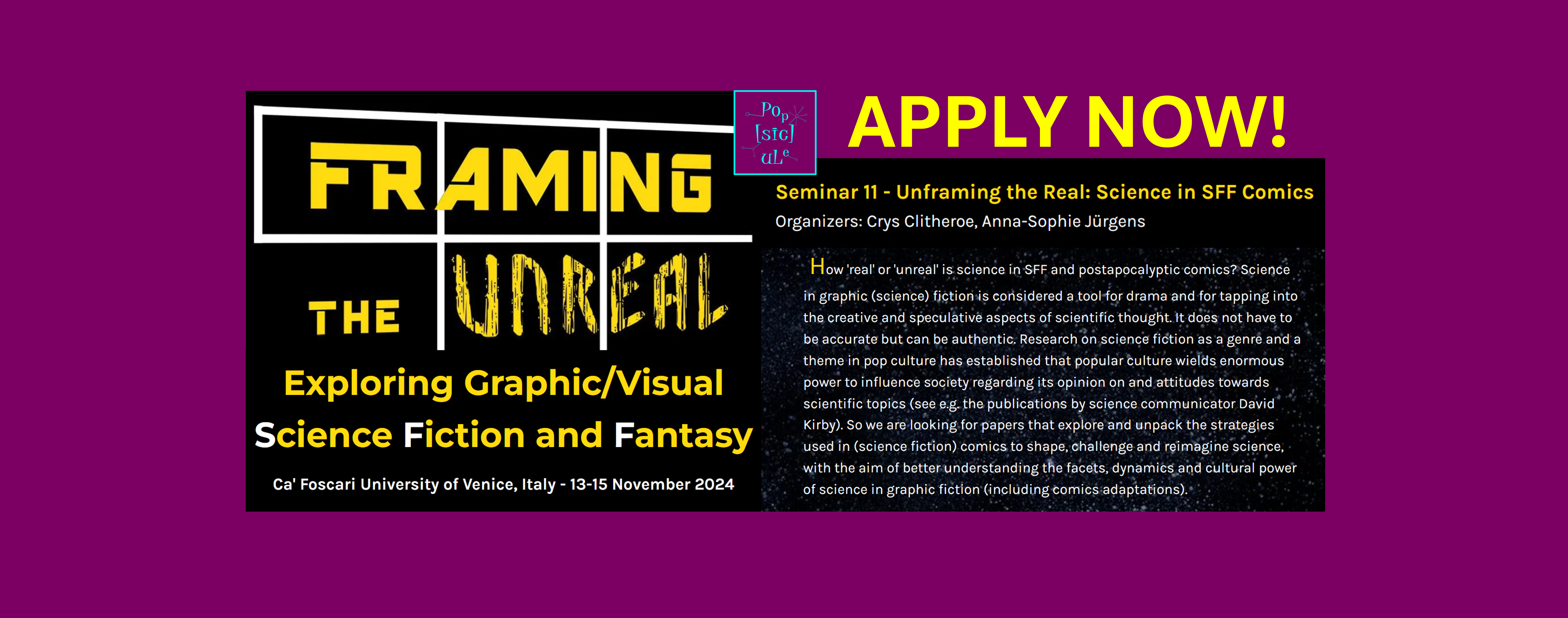We’re inviting you to submit YOUR abstract on how ⚛ science ⚛ is represented in science fiction and fantasy comics to our panel, “Unframing the Real” at this year’s Comics-Studies Society Conference: FRAMING | THE | UNREAL

Submit your abstracts to PANEL 11 by 31st May 2024
Cant make it to Venice? No Problem, the conference will be in Hybrid mode!
How ‘real’ or ‘unreal’ is science in SFF and postapocalyptic comics? Science in graphic (science) fiction is considered a tool for drama and for tapping into the creative and speculative aspects of scientific thought. It does not have to be accurate but can be authentic. Research on science fiction as a genre and a theme in pop culture has established that popular culture wields enormous power to influence society regarding its opinion on and attitudes towards scientific topics (see e.g. the publications by science communicator David Kirby). So we are looking for papers that explore and unpack the strategies used in (science fiction) comics to shape, challenge and reimagine science, with the aim of better understanding the facets, dynamics and cultural power of science in graphic fiction (including comics adaptations).
Some Ideas:
● Cultural representations of science’s procedures and processes produce and present an image of science that does not always have much in common with ‘real’ science. What can we learn from science in comics about science? In the medium of sci-fi comics, science narratives have their own persuasive truths. What are these truths?
● HazMat suits, Speedsuits and Lab coats! What is the gender and morality of the Lab coat (is it a superhero cape or a villainous coat)? Is the lab coat fashion or placebo (increasing potentials for learning, conditioning, suggestibility and catharsis)?
● Who are the comics scientists, inventors, and innovators? How do they identify? Where are they from and do their experiences, cultures and beliefs influence how they do their science and what they use it for? How do we relate to their stories?
● If science institutions in (SFF) comics are modelled after ‘real life’ institutions (and some of them are!), how do their narratives influence what the recipient imagines about the role, agency or authority of those institutions?
How accessible is sci-fi science to the characters in their story worlds? Is it an open-source playground or a precious resource gatekept by an authority?
● How does the presentation of science in comics change in adaptations? For example, how does media affordance (visually and narratively) influence and frame the way a scientific concept is presented (explained, elucidated) in the film adaptation of a comic?


